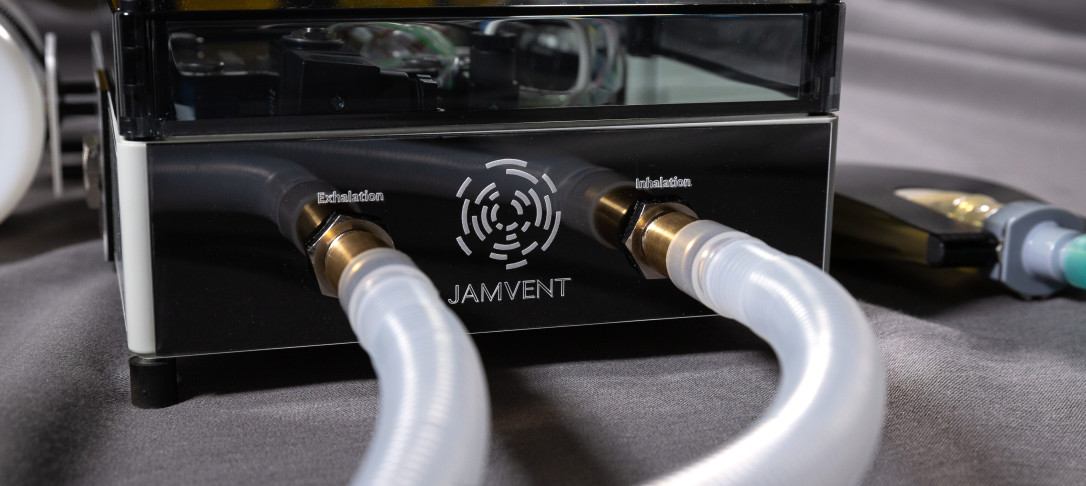
As part of our Bioeng COVID-19 Virtual Seminars series, join us for an introduction to JAMVENT, the industry-disrupting, low-cost ventilator developed by researchers from the Department of Bioengineering and the Department of Surgery and Cancer.
_____
Speakers:
 Joseph Sherwood is a Research Fellow in the Department of Bioengineering at Imperial College London. He has an MEng in Mechanical Engineering from King’s College London and a PhD in Biofluid Dynamics from University College London.
Joseph Sherwood is a Research Fellow in the Department of Bioengineering at Imperial College London. He has an MEng in Mechanical Engineering from King’s College London and a PhD in Biofluid Dynamics from University College London.
Joseph’s research covers multiple aspects of biofluid dynamics, with a particular focus on flows of biological fluids in small places and how they are altered by disease. This includes blood flow in microvessels in diabetes and aqueous humour flow in glaucoma. Since the COVID-19 pandemic, Joseph’s main focus is the development of a low-cost, high-performance ventilator to help address the global shortage.
Joseph has been working in the Department of Bioengineering for 8 years and teaches Biofluids in the Biomechanics course for 3rd year MEng and MSc students.
 Jakob Mathiszig-Lee graduated from medicine at Imperial College London and is now a senior anaesthetic registrar in North West London. He is also currently an honorary clinical research fellow within the Department of Surgery and Cancer within Imperial College.
Jakob Mathiszig-Lee graduated from medicine at Imperial College London and is now a senior anaesthetic registrar in North West London. He is also currently an honorary clinical research fellow within the Department of Surgery and Cancer within Imperial College.
His areas of interest include complex gastrointestinal surgery, total intravenous anaesthesia and health informatics. Current research projects include the use of Generalised Additive Models to predict mortality in emergency surgery and the development of novel pharmacokinetic models for propofol. He is also part of the organising group of NHS Hack Day’s
 Michael Madekurozwa is currently a private contractor and a Visiting Researcher in the Department of Bioengineering at Imperial College London. He has an MEng and PhD in Biomedical Engineering from Imperial College London.
Michael Madekurozwa is currently a private contractor and a Visiting Researcher in the Department of Bioengineering at Imperial College London. He has an MEng and PhD in Biomedical Engineering from Imperial College London.
He currently consults on the building of systems for research. His PhD was focused on experimental biofluid dynamics of the eye, a research area that required the design and implementation of tools, hardware and software.

Jennifer Frattolin is currently a post-doctoral research associate in the Department of Bioengineering at Imperial College. She received her Bachelor of Engineering in Mechanical Engineering from Lakehead University and her PhD in Mechanical Engineering from McGill University. Her primary research interests include the development of medical devices, as well as the biomechanics of the cardiovascular and lymphatic systems. Currently, her research is focussed on understanding how chemokine gradients are formed, utilising microfluidics. These gradients are what drive immune responses within the body.